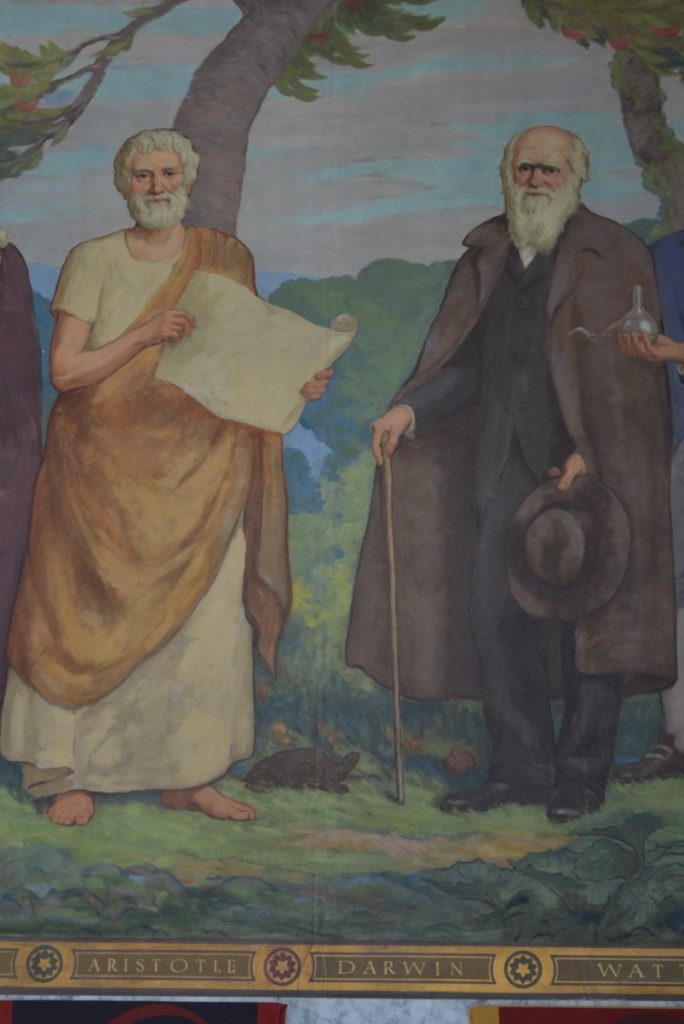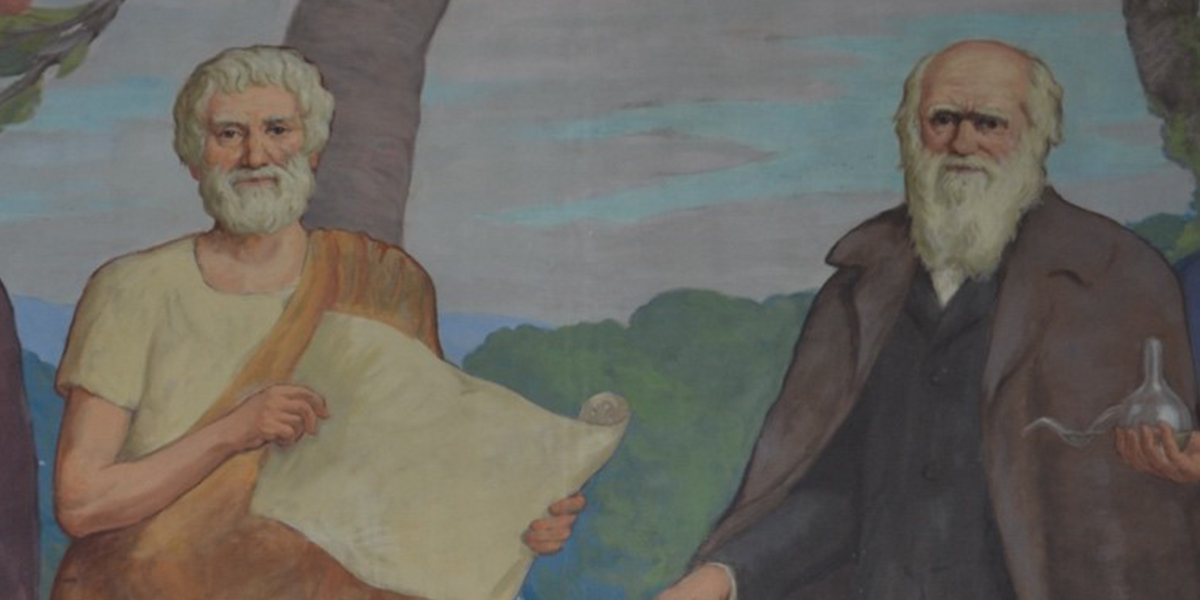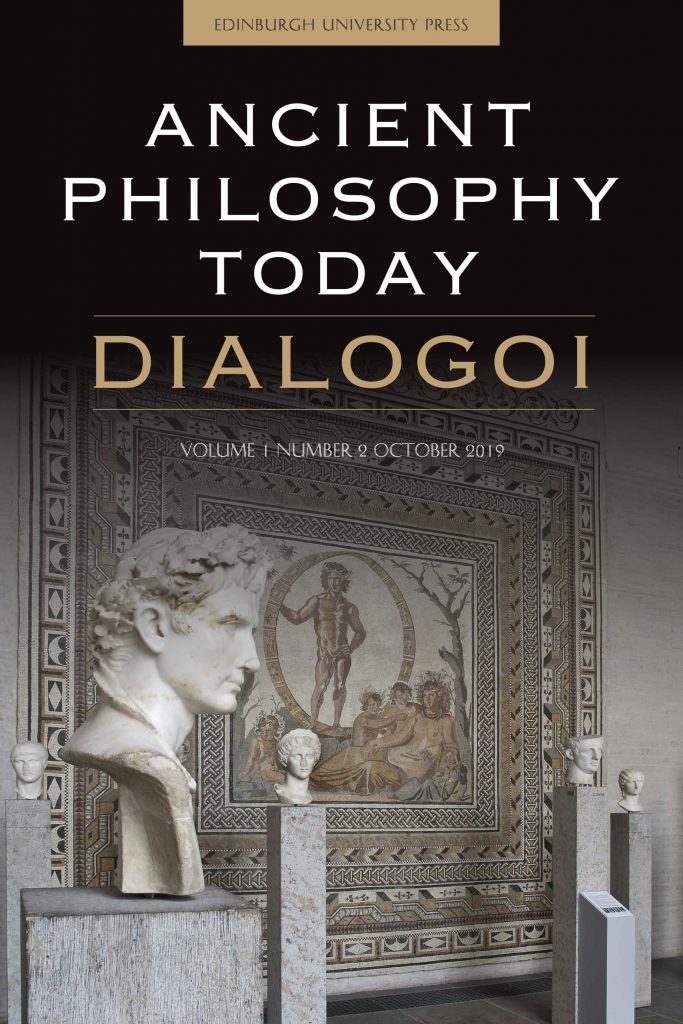
By Anne Siebels Peterson
Aristotle did not merely engage widely in natural science. He articulated the distinctive methods and principles that should guide one in seeking explanations of nature, and distinguished these methods and principles from those used in other sciences. He argued for the autonomy of natural science against the Pythagorean and Platonic tendency to conflate it with mathematics. Indeed, this new articulation of natural science opened the door for him to invent the science we know today as the science of life –biology. Aristotle’s own biological writings, which comprise at least one quarter of his extant work, are far from a mere record of biological observations. They engage deeply with his views on the methods and principles definitive of natural science and science more generally.
How did Aristotle accomplish his innovative investigation into natural science, an investigation that led to his inauguration of biology as an autonomous science? What methods and principles of his might call out for renewed attention today as we continue to engage in these sciences and seek out new sciences ourselves? One important step on the way to answering such questions is to investigate Aristotle’s early work in the Prior Analytics and Posterior Analytics on the nature of science and scientific explanation in general. While we tend to equate science with natural science, Aristotle’s term epistēmē referred to any domain of knowledge (including mathematics, natural science, and metaphysics alike). Because his work in natural science is set against the backdrop of his work on science more generally, some of the methods and principles that were so important in Aristotle’s innovative investigations into nature and biology might originate in his general philosophy of science.

One central question in philosophy of biology—in Aristotle’s time and still today—concerns the nature of homologies, or relationships of sameness between traits in different species (and sometimes within a species). For example, the forelimbs of bird and bat are considered the same trait—that is, bird and bat forelimbs are considered homologous. However, when we further specify these traits as bird wing and bat wing, they are not considered homologous, since their evolution for flight occurred separately in each lineage. Yet bird wing and bird forelimb, or bat wing and bat forelimb, are not two different traits in the world. They are one and the same trait, specified differently. Depending on how we specify a certain trait, the question of whether it is homologous to another trait will be answered differently; any homology claim therefore requires careful and precise specification of the traits at issue. Although the bird and bat forelimb case is now well-recognized, in other cases it is difficult to sort out the proper way to specify the traits at hand.
What general rule should we use to govern the proper specification of traits in our homology claims? In ‘Aristotelian Explanation and Homology in Biology,‘ from Volume 2 Issue 1 of Ancient Philosophy Today, I argue that whereas the contemporary literature tends to answer this question in a hierarchical way, Aristotle offers a more neutral and precise diagnosis of (and antidote to) the general problem at hand. Aristotle was acutely aware of how our specification of the object we are investigating affects the truth of the judgments we make about it. In the Posterior Analytics he carefully articulates a methodological principle to govern our scientific reasoning and avoid improper specifications. I argue that Aristotle’s principle has not only retained its relevance for today’s controversies in homology, but has in fact become more relevant given our evolutionary context. The principles of Aristotle’s philosophy of science, which paved the way for him to reinvent natural science and invent biology, are thus of ongoing—and in this case even increased—relevance for us as heirs to that achievement.
Anne Siebels Peterson University of Utah

Anne Siebels Peterson (Ph.D. 2015, University of Notre Dame) is Assistant Professor of Philosophy at the University of Utah. She researches Aristotle’s metaphysics and natural philosophy, especially his investigations into body, soul, change, and life, along with their contemporary relevance.
Anne’s article, ‘Aristotelian Explanation and Homology in Biology,‘ from Volume 2 Issue 1 of Ancient Philosophy Today, is available to access now. Ancient Philosophy Today: DIALOGOI provides a forum for the mutual engagement between ancient and contemporary philosophy. The journal connects interpretative work in ancient philosophy to current discussions in metaphysics, epistemology and ethics, and assesses the continuing relevance of ancient theories to current philosophical interests and debates. Find out how to subscribe and recommend to your library.






